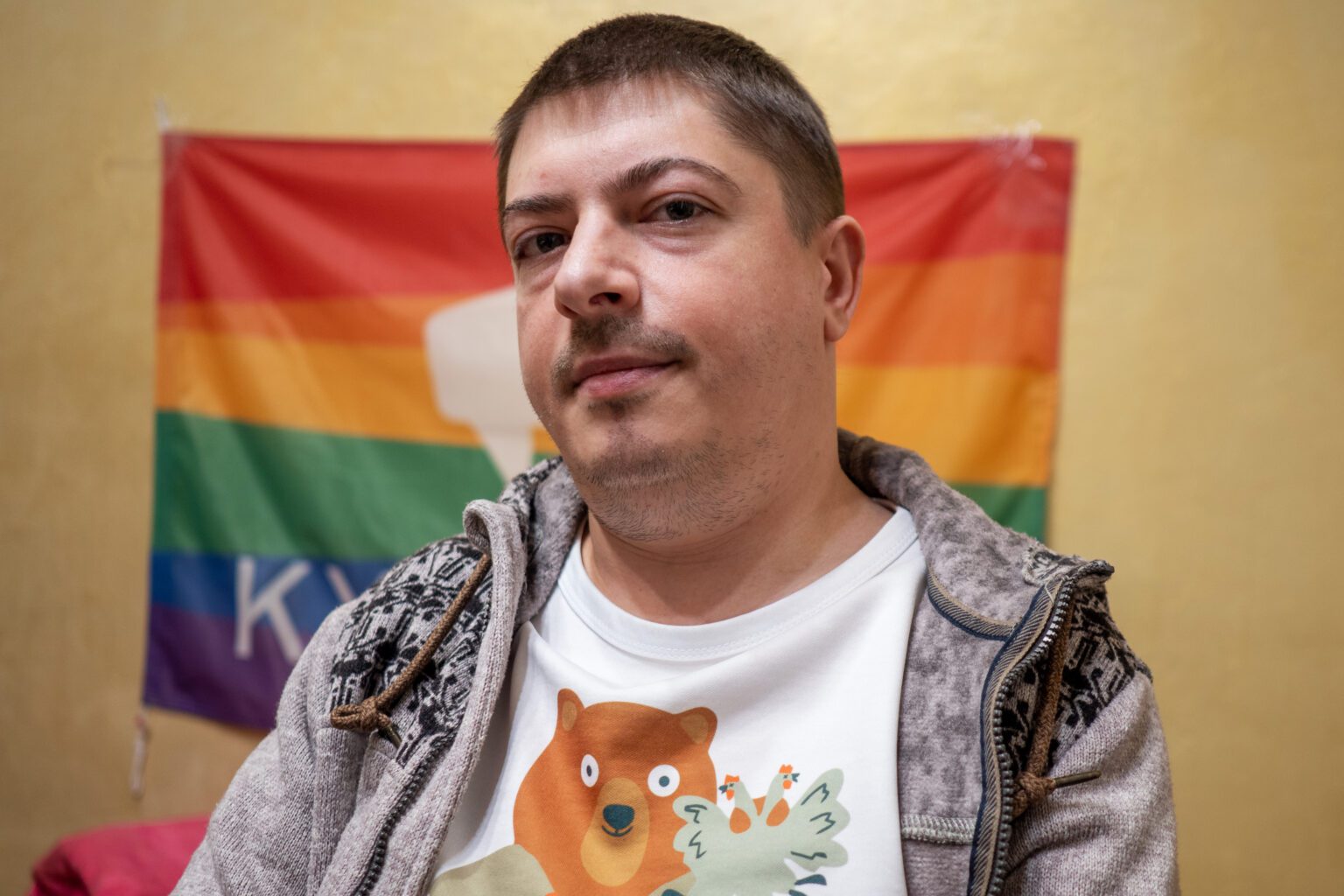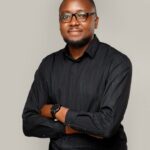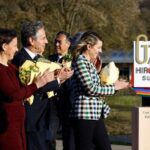Global Courant 2023-04-16 15:00:00
KYIV, Ukraine – On a riotous Instagram profile featuring pole dancing, cross-dressing and bright makeup, a photo of Ivan Honzyk in high heels and stockings next to an image of him in military uniform has received the most likes by far.
The junior sergeant’s posts are a bold statement in socially conservative Ukraine, where pre-war pride parades were often attacked and parts of the country are occupied by troops loyal to Russia, one of the world’s most notably homophobic states .
But as more members of the LGTBQ community fight on the frontlines, the increased visibility of gay and lesbian military personnel appears to be a catalyst for wider societal acceptance, and polls show that attitudes are changing.
Honzyk, 27, said his uncompromising self-expression, combined with his work in places like Bakhmut – the city in eastern Ukraine that has seen some of the war’s bloodiest battles, while serving as a powerful symbol of the country’s resistance — helps advance the cause of LGBTQ rights in the country faster than any pride march could.
“My fellow soldiers are really impressed with what I did in Bakhmut, the sheer amount of work I did there, and after that they just don’t care who I sleep with,” Honzyk, whose medical unit evacuates wounded soldiers and provides emergency first aid, told NBC News at a hip café in Ukraine’s capital, Kyiv, while on leave from the frontline.
Plenty of other gay and lesbian soldiers have also posted photos and videos of themselves online, some sporting unicorn insignia on their uniforms, the mythical creature an ironic response to the idea that there are no LGBTQ people in the military.
In the US, lesbians, gays and bisexuals were not allowed to serve openly in the military until late 2011. Ukraine’s armed forces had no regulations preventing the LGTBQ community from serving, but homophobia was rife in its ranks, reflecting more widespread societal attitudes.
Honzyk said gay and lesbian soldiers helped change homophobic attitudes in the socially conservative country. Mo Abbas/NBC News
But in apparent recognition of their services, Ukrainian lawmakers recently introduced a bill that recognizes same-sex relationships and addresses the lack of inheritance, medical and other rights for the partners of LGTBQ soldiers killed or wounded fighting pro-Moscow troops.
“The parades and pride events weren’t enough,” said Honzyk, who has been on the job for four years. “The better way to change attitudes is what we are doing now. We entered the army and we show that we are worthy. We’re not hiding in the back somewhere. We are doing real missions, dangerous missions.”
LGBTQ ‘propaganda’
On the other side of the border, President Vladimir Putin has maintained that he launched the invasion in February 2022 to protect Russian-speaking people in eastern Ukraine, while trying to frame what he calls the “special military operation” as a defense of morality against un-Russian liberal values promoted by the West.
Putin has often espoused “traditional values” in his speeches, presenting gender reassignment operations and same-sex parenting as morally degenerate Western imports. In December, he signed a new law that expands Russia’s restrictions on the promotion of what it calls “homo propaganda,” effectively ban any public expression of LGBTQ behavior in Russia.
Any action is considered an attempt to promote homosexuality in public; online; or in movies, books or advertisements can incur a heavy fine.
Activists such as Edward Reese, 37, a non-binary communications officer at KyivPride, said the Russian invasion had sharpened Ukraine’s sense of self-identity and caused many of its compatriots to show greater empathy for their LGBTQ compatriots.
“People see that homophobia, transphobia, sexism and racism are Russian values,” he said. “People understand that they don’t want anything in common with Russia. That is why here in Ukraine they are starting to think about their own homophobia.”
KyivPride Communications Coordinator Edward Reese.Mo Abbas/NBC News
Reese said he had a tough upbringing and was sent for so-called conversion therapy by religious parents who followed the Ukrainian branch of the Russian Orthodox Church.
The church has spoken out against LGBTQ people, and last year its leader, Patriarch Kirill of Moscow, said the “sin” of gay pride parades justified war in Ukraine.
But his influence and that of his church has plummeted in Ukraine in recent years. In 2019, the Ukrainian Orthodox Church split from its Russian counterpart.
Kiev has since accused Russian Orthodox priests of spying for Moscow, charges they deny.
“Ukrainian civil society is trying to kick out the Russian Orthodox Church, and they are the most anti-gay people in Ukraine,” LGBTQ activist Maksim Mishkin, 40, said at KyivPride’s offices.
“Today, most of the religious people in Ukraine are positive or neutral towards us.”
Someone to hate
Away from the battlefield, LGBTQ groups in Ukraine and abroad have helped evacuate and house people displaced by the fighting and raise money for the military.
Mishkin said he held fundraisers to send care packages to service staff, with the grateful soldiers returning photos of themselves brandishing coffee mugs and other items with LGBTQ-affiliated logos.
Such efforts may have contributed to growing adoption in Ukraine.
Ukrainian LGBTQ activist Maksim Mishkin in KyivPride offices.Mo Abbas/NBC News
A January survey by the US-based National Democratic Institute, a non-profit, non-governmental organization working to increase the effectiveness of democratic institutions in developing countries, found that 58% of Ukrainian respondents agreed that LGBTQ “people should have the same rights as others.”
That contrasts with a 2016 survey from the Kyiv International Institute of Sociology that found that 60.4% of respondents viewed LGBTQ people negatively. Last year, a similar poll showed that the percentage had shrunk to 38.2%.
Ukrainian politician Inna Sovsun hopes to use the positive momentum to pass a bill she introduced in parliament last month that recognizes same-sex relationships.
“If a person in uniform says, ‘Look, I have a lover. If I am killed in action to protect this country, and protect all of you, my partner will not be able to make decisions about where to bury me because there is no legal connection between us’, that is something that society can’t say no to, because they’re in uniform and risking their lives every minute for us,” she said.
“At the moment it is not only the right thing to do, it is also the politically smart thing to do, because the majority of Ukrainians actually support it,” she added.
However, she cautioned that the level of support for LGBTQ rights in Ukraine may be overstated.
Outside the country’s main metropolitan centers, life for LGBTQ people can be difficult, she said, adding that not all LGBTQ servicemen were accepted by their peers and some were bullied.
Life is too short for Honzyk to worry about the haters before returning to the frontline.
“If you accept yourself, the world will accept you too. You have to remember that many people wear masks, but you shouldn’t because you only have one life and every day a missile can kill you,” he said.
“Don’t worry about what other people say because they will always find someone to hate.”








